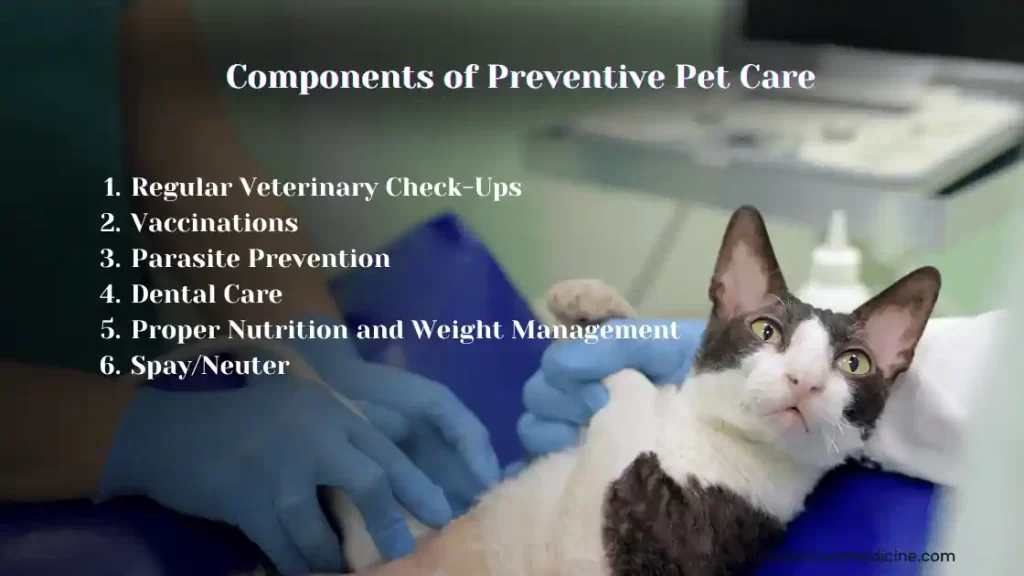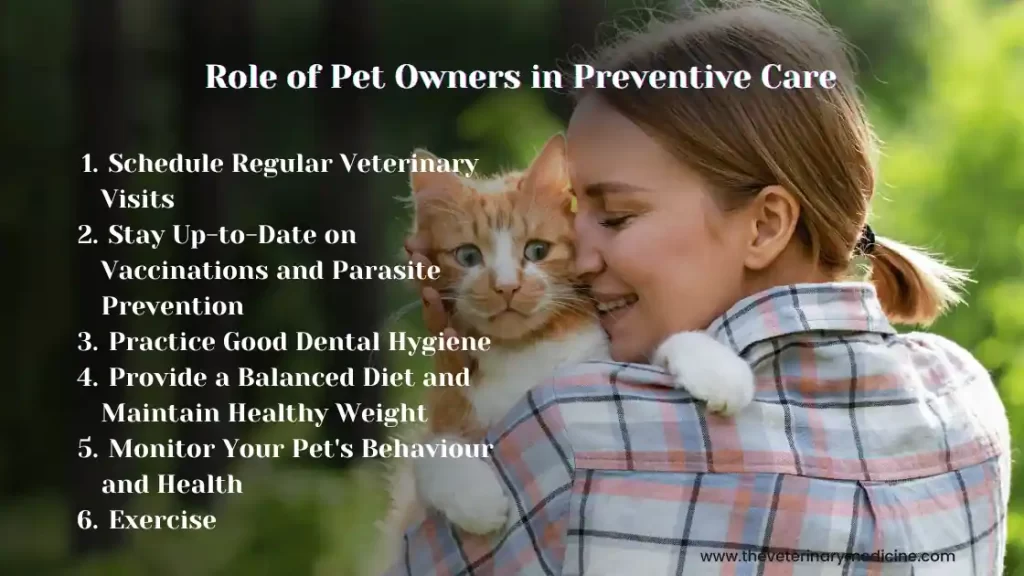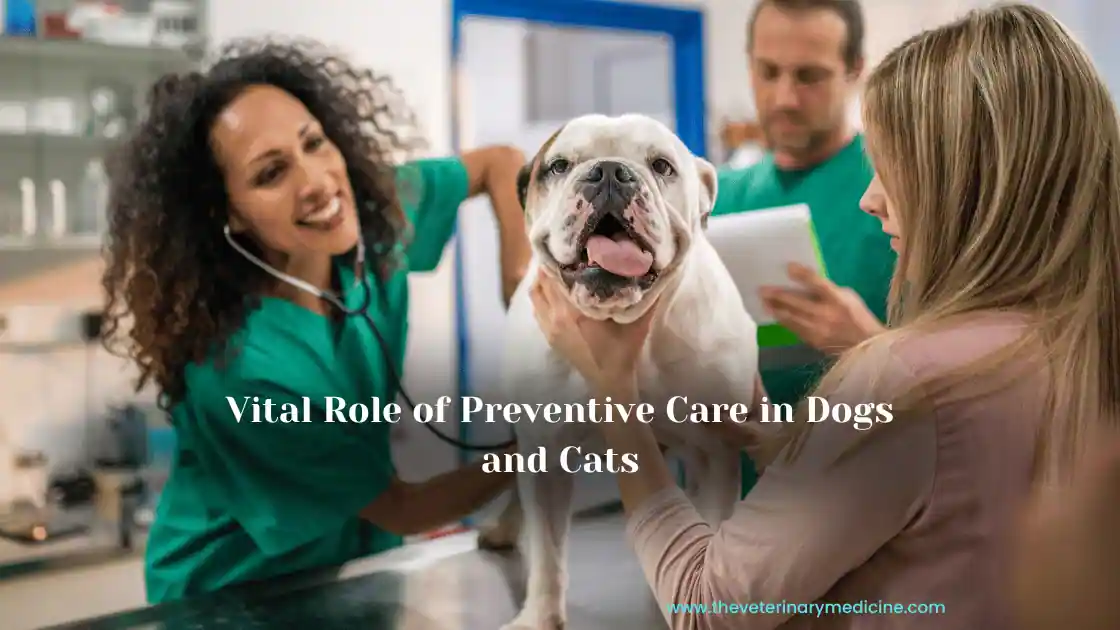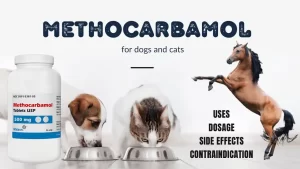Importance of Preventive Pet Care
As pet a parent, everyone wants the best for their fur babies. We take care of them in every aspect from providing nutritious food, exercise, treats, grooming and ensuring they have a comfortable place to sleep. But caring for pets goes beyond these basic needs. Preventive care plays a critical and very important role in ensuring that pets live long, healthy, and happy lives. It is a proactive approach that focuses on disease prevention and detection of health issues early, before they become serious problems.
In this blog post, we’ll discuss about the importance of preventive care for pets, explore the different aspects of preventive care, and discuss how regular veterinary visits, vaccinations, dental care, and proper nutrition can significantly impact your pet’s well-being.
Why Preventive Care is Crucial?
Preventive care is the cornerstone of veterinary medicine and pet care. It involves a combination of regular veterinary check-ups, vaccinations, parasite control, dental care, and proper nutrition. The main aim of preventive care is to prevent diseases, detect health issues early, and provide timely treatment, which ultimately enhances the quality of life for pets.
1. Early Detection of Health Issues
One of the most significant benefits of preventive care is the early detection of health problems. Pets are often experts at hiding signs of illness, and by the time symptoms become noticeable, the condition may have progressed to an advanced stage. Many disease conditions like diabetes, hypothyroidism, joint diseases, skin issues, kidney problems can be diagnosed at early stage if you are particular about regular veterinary check-ups. It also allows for the early detection of issues such as dental disease, obesity, heart problems, and cancers.
Regular check-ups allow veterinarians to identify potential health problems in their early stages, enabling timely intervention and increasing the chances of successful treatment.
2. Cost-Effective Care
Preventive care can save money in the long run. Treating an advanced disease or emergency condition is often more expensive than preventive measures. For example, regular dental cleanings can prevent the need for more costly and complex procedures like dental extractions down the line. Vaccinations and parasite prevention can protect pets from diseases that are not only life-threatening but also expensive to treat. Early diagnosis often leads to more effective treatments, more economic, less sufferings and better outcomes.
3. Enhanced Quality of Life
Preventive care can ensure a higher quality and prolonged life for pets. By preventing diseases and managing chronic conditions early, pets can enjoy more active, pain-free lives. Regular exercise, vaccinations, deworming, diagnostic tests, a balanced diet, and routine veterinary checkups are essential components of preventive care that ensure pets remain healthy and happy throughout their lives.
4. Disease Prevention
Vaccinations protect your pet from contagious diseases that can be fatal, while parasite preventive measures safeguard them from harmful internal and external parasites.

Components of Preventive Care
Preventive care is multifaceted, encompassing several areas that collectively contribute to a pet’s overall health. Here’s a closer look at the key components of preventive care:
Regular Veterinary Check-Ups
Routine veterinary visits are the foundation of preventive care. These visits allow veterinarians to assess your pet’s overall health, identify potential issues, and provide recommendations tailored to your pet’s specific needs. During a check-up, the veterinarian may:
- Conduct a thorough physical examination.
- Discuss your pet’s diet, exercise, and behavior.
- Recommend necessary vaccinations and parasite prevention.
- Perform diagnostic tests if needed (e.g., blood work, urinalysis, x-rays etc).
- Discuss any changes in your pet’s health or behavior.
Regular check-ups are especially important for senior pets, as they are more susceptible to certain health conditions. For younger pets, these visits are an opportunity to establish a baseline of health that can be monitored over time.
Vaccinations
Vaccinations are very important part of preventive care. It helps in protecting pets from a variety of contagious and potentially fatal diseases. Vaccinations work by stimulating the immune system to recognize and fight specific pathogens, such as viruses and bacteria.
Core vaccines, which are recommended for all pets, typically include:
- For Dogs:
- Rabies
- Canine distemper
- Parvovirus
- Adenovirus
- For Cats:
- Rabies
- Feline distemper (panleukopenia)
- Feline calicivirus
- Feline herpesvirus
- For Dogs:
Non-core vaccines may also be recommended based on your pet’s lifestyle, environment, and risk of exposure to certain diseases like Leptospirosis, Kennel cough, infectious canine hepatitis. For example, dogs that spend a lot of time outdoors may benefit from a Lyme disease vaccine.
Keeping up with your pet’s vaccination schedule is essential, as it ensures they are protected against common and serious diseases. Discuss with your veterinarian the appropriate vaccination protocol or schedule for your pet.
Parasite Prevention
Parasites, both internal and external, pose significant health risks to pets. Preventive care includes regular treatments to protect pets from parasites such as:
- Ectoparasites – Fleas and Ticks: These external parasites can cause discomfort, skin irritation, allergic reactions, and transmit life threatening diseases such as Lyme disease, Babesiosis and ehrlichiosis. Regular flea and tick prevention is essential, especially for pets that spend time outdoors.
- Heartworms: Heartworm disease is a serious condition transmitted by mosquitoes. It can cause severe lung disease, heart failure, and even death. Monthly heartworm preventives are crucial, especially in areas where heartworms are common.
- Intestinal Parasites: Roundworms, hookworms, and tapeworms are common internal parasites that can cause gastrointestinal issues and other health problems. Regular deworming and fecal exams help keep pets free from these parasites.
Discuss with your veterinarian the best parasite prevention plan for your pet, taking into consideration their age, lifestyle, and environment.
Dental health is often overlooked but is a vital component of preventive care. Poor dental hygiene can lead to periodontal disease, bad breath, bleeding, tooth loss, and systemic infections that can affect the heart, liver, and kidneys.
Preventive dental care includes:
- Regular Dental Check-Ups: During routine check-ups, your veterinarian will assess your pet’s dental health and recommend professional cleanings if necessary.
- At-Home Dental Care: Brushing your pet’s teeth regularly and providing dental chews, dental water additives or toys can help reduce plaque and tartar buildup.
- Diet: Feeding your pet a diet that supports dental health, such as specially formulated dental diets, can also help maintain oral hygiene.
By taking care of your pet’s teeth, you can prevent painful dental diseases and contribute to their overall well-being.
Proper Nutrition and Weight Management
Nutrition is a key factor in your pet’s overall health. A balanced diet provides the necessary nutrients to support their immune system, maintain a healthy weight, and prevent obesity which ultimately reduces the chances or other diseases such as cardiac issues, diabetes and joint issues.
Preventive care includes:
- Choosing the Right Diet: Consult your veterinarian to determine the best diet for your pet based on their age, breed, size, and health status. Specialized/ prescription diets may be recommended for pets with specific health conditions like skin problems, diabetes, renal disease, urinary stones, urinary infections, joint problems and much more.
- Portion Control: Overfeeding can lead to obesity, which increases the risk of various health issues, including joint problems, heart disease, and diabetes. Feeding your pet the appropriate portions and right diet according to age, breed and health condition is crucial for maintaining a healthy weight.
- Monitoring Weight: Regularly weighing your pet, monitoring their body condition score helps ensure they remain within a healthy weight range. A balanced diet and appropriate exercise are vital for maintaining your pet’s optimal weight and overall health. Body condition score evaluation by you or your veterinarian can give you an idea if your pet is weighing ideal or not. If your pet is overweight/ underweight, your veterinarian can provide guidance on weight loss/ gain plans and dietary adjustments.
Spay/Neuter:
Spaying or neutering your pet offers numerous health benefits, including reduced risk of certain cancers, uterine infections, and unwanted pregnancies. It also helps control the pet population.
A well-balanced diet, combined with regular exercise, is essential for maintaining your pet’s overall health and preventing weight-related health problems.

The Role of Pet Owners in Preventive Care
Pet owners play a critical role in preventive care. Being proactive about your pet’s health can make a significant difference in their quality of life. To ensure your pet receives optimal care, it’s essential to create a personalized preventive care plan. This plan should outline vaccination schedules, parasite prevention measures, dental care routines, and regular check-up appointments. Here are some steps you can take to ensure your pet receives the best preventive care:
Make it a priority to schedule annual or bi-annual check-ups with your veterinarian according to pet’s health and age. These visits are crucial for monitoring your pet’s health and catching any potential issues early.
Stay Up-to-Date on Vaccinations and Parasite Prevention:
Keep track of your pet’s vaccination schedule and administer parasite preventives as recommended by your veterinarian. Consistent protection is key to prevent serious health issues.
Practice Good Dental Hygiene:
Incorporate dental care into your pet’s routine. Regular brushing, dental chews, diets and professional cleanings are essential for maintaining your pet’s oral health.
Provide a Balanced Diet and Maintain Healthy Weight:
Feed your pet a high-quality, balanced diet that meets their nutritional needs according to health, age and breed. Consult your veterinarian for recommendations on the best diet for your pet.
Monitor Your Pet’s Behaviour and Health:
Pay attention to any changes in your pet’s behavior, appetite, or physical appearance. Early signs of illness, such as lethargy, weight loss, or changes in eating habits, should be addressed without delay and consult with a veterinarian.
Exercise:
Provide plenty of exercise and mental stimulation for overall wellbeing of your pet. Offer your pet plenty of love and attention.
Common Misconceptions About Preventive Care
- Myth: My pet is an indoor pet, so they don’t need vaccinations or parasite prevention.
- Fact: Even indoor pets are susceptible to certain diseases and parasites.
- Myth: Preventive care is expensive.
- Fact: While there are upfront costs, preventive care can save you money in the long run by preventing costly treatments for advanced diseases.
Conclusion
Preventive care is cost effective foundation of a long, healthy, and happy life for your pet. By taking a proactive approach to your pet’s health, you can prevent many common diseases, detect health issues early, and ensure your pet enjoys a high quality of life. Regular veterinary visits/ checkups, vaccinations, parasite prevention, dental care, and proper nutrition are all essential components of preventive care that contribute to your pet’s overall well-being.
As a pet owner, you have the power to make a positive impact on your pet’s health through preventive care. By working closely with your veterinarian and following the guidelines outlined in this blog post, you can give your pet the best chance at a long and healthy life.
Remember, when it comes to your pet’s health, prevention is always better than cure. Take the necessary steps today to ensure your furry friend remains happy and healthy for years to come.





